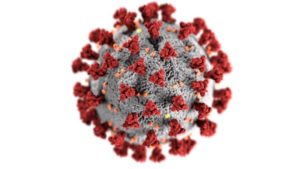The Good Health Pass Collaborative is following through on its efforts to standardize digital health passes. To that end, the organization has published a draft version of its Interoperability Blueprint, and is now inviting stakeholders and the public to comment on the draft ahead of the upcoming G7 Summit in the United Kingdom.

The Collaborative itself was set up back in February in an effort to create a comprehensive set of standards for digital health passes. In doing so, ID2020 (which spearheaded the Collaborative) is hoping to help the travel sector recover as it emerges from COVID-19. The organization acknowledged that many health passes have been rushed to market in the past few months, but warned that many of them may not have adequate privacy and security protections, and may not be compatible with the passes being used in other parts of the world.
The Blueprint is intended to solve that problem, providing tech developers with clear guidelines that they can follow to deliver secure health passes that make it easier for people to share their COVID-19 status. Once adopted, individual travelers can be confident that a solution built to those standards will protect their privacy and give them full control over their personal data. Airlines and border agents, meanwhile, can trust that the information is accurate, and that people who share COVID test and vaccination results are indeed healthy enough to travel.
The full Blueprint covers nine technical challenges, ranging from design and usability all the way through to identity binding and governance. ID2020 will be accepting comments for a three-week period, and is hoping to publish the final version of the document by the end of June. The organization asked the G7, the G20, and the European Union to create a working group of health and transportation experts with that objective in mind.
The Interoperability Blueprint was developed in collaboration with the Linux Foundation, and with its Trust Over IP Foundation, COVID-19 Credentials Initiative, and Linux Foundation Public Health projects in particular.
“Digital health passes offer our best hope to safely, confidently, and promptly restore global travel and restart the global economy – but only if they are widely trusted and adopted by the public and universally accepted by airlines and border control agencies,” said ID2020 Executive Director, Dakota Gruener. “The standards proposed in the Good Health Pass Interoperability Blueprint will make it possible for digital health pass systems around the world to be interoperable with one another, thus creating a trusted, convenient, and seamless experience for travellers as well as for airlines, airports, and border control agencies.”
More than 125 organizations (representing the health, technology, and travel sectors) have already joined the Good Health Pass Collaborative, with TECH5 – which has its own immunity credential – standing as one of the most recent additions. Daon’s VeriFLY and CLEAR’s Health Pass have been some of the more popular digital health pass solutions with early adopters.
[UPDATE 06/10/2021: An earlier version of this article stated that ID2020 was aiming to publish the final version of its Blueprint by July 16. ID2020 has since revised its target date to late June.]

Follow Us